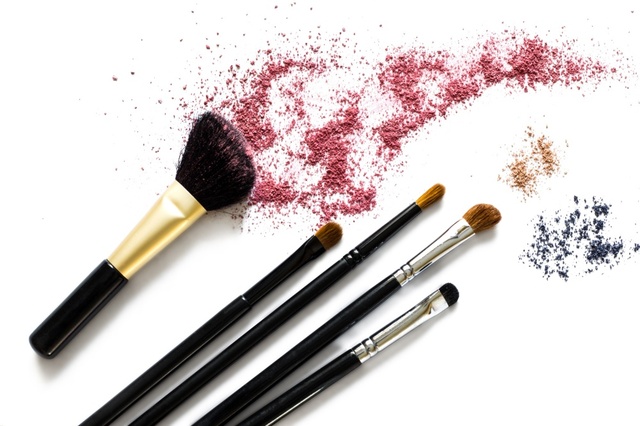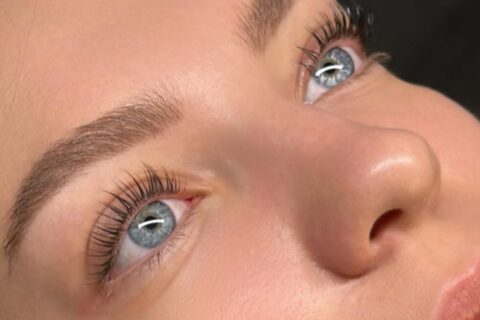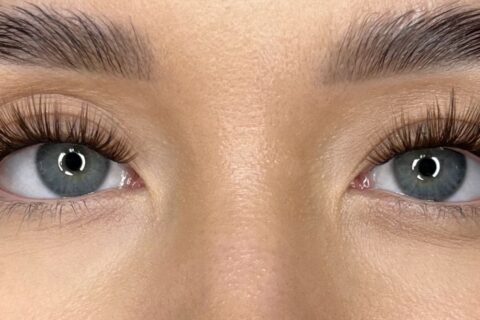Hello my Dearest,
today a little bit on cleansing and cleaning up 😉
I’m going to tell you how to clean make-up brushes so as to stop them from working to your disadvantage, to help them gift you with flawless make-up and to prevent them from leaving your skin with ‘nasty surprises’ in the form of irritations, acne and allergies (all of these can happen to you if you don’t take care of your make-up accessories properly). How to clean your make-up brushes so as not to let them become the breeding ground for bacteria?
However, before we move to the Step by Step manual I’ve prepared for you, it’s worth talking about a few important issues concerning make-up brush cleaning:
How often do you have to get your make-up brushes clean?
In this particular case I’d call myself sturdy. I suggest you to wash the brushes after every single use, or every 2-3 days. The most frequently you clean them, the smaller the chance for the bacteria to multiply inside the bristle. Since the brushes should be washed fairly often, it’s wiser to choose the accessories which are solid and recommended by the make-up artists. A decent powder brush or, so-called, flat top used to apply a foundation costs quite a sum, sadly, but be aware that this kind of a gadget will stay with you for many long years and will serve you well. Its bristle will remain dense, it won’t deform nor get thinner and thinner with every stroke you make. Moreover, there’s this conviction that brushes you use to apply loose products hold longer without cleaning. Therefore, you can wash them once a week, or even every 10 days, yet I find this ’10-day rule’ a very optimistic version. It’s better to be safe than sorry and don’t neglect our ‘best make-up friends’.
What should be used to wash make-up brushes?
There are plenty of readymade preparations designed to wash make-up brushes but personally I prefer making my accessories clean using a regular baby lotion. The brushes I use to apply my loose colour cosmetics get clean easily thanks to Johnson’s Baby shampoo, or just any other similar cosmetic. When it comes to the brushes which have to endure liquid or creamy cosmetics (i.e. a foundation brush, for cream eyeshadows, for lipstick) I ’emulsify’ them first, which means that I apply a little bit of a natural oil or baby oil and then wash with a shampoo.
Just one last thing to mention. Drugstores offer a wide range of make-up brush washing ‘facilitators’, which are various sponges or silicone gloves designed to make brushes clean, of course. These gadgets are cool, yet I don’t find them useful at all. My method of washing brushes, which I’m going to show you in a moment, is way faster and can help you cleanse bristle equally effectively.
How to make your brushes clean?
Brush cleaning STEP BY STEP
- If your brushes are used for liquid and creamy products, it’d be better if you started from applying a small amount of an oil (I use a regular castor oil). Then, put the brushes somewhere where they won’t touch any surface and make anything greasy. Now, reach for dry products brushes. Take a bowl and mix a few drops of a baby shampoo with warm, but not hot water. Damp the brush and then apply circular motions with it on the palm of your hand – the bristle will brush up against your hand and the shampoo will start lathering. You will notice a colourful foam draining from the brush – that’s the sign of the colour cosmetics leaving the bristle.
- Rinse the brush every few seconds under the stream of running water (keeping the bristle downwards), put the brush into the bowl again and do the circles on your hand until you see the lather becoming white. Now, you can rinse the brush with water the last time, removing the excess of water gently, but without kneading nor jerking the bristle. Put the brush somewhere when there is neither too dry nor too hot for this make-up accessory (as you can see, a radiator isn’t the best place) and where bristle won’t touch any surfaces.
- It’s time to oil the brushes used to apply greasy substances to your face. How to wash such brushes? Of course, in the same way you do this with other brushes: immerge the accessories in the bowl with soap and keep doing the circles on your palms until you notice the oil and the colour cosmetics flowing down into the washbasins’ drain. Just make sure that the bristle is clean so you can let it air-dry.
- How to dry make-up brushes? Basically, there’s nothing much you can do to improve or accelerate this process because the bristle has to dry on its own – all you can do is gently squeeze out the excess of water using a leaf of paper towel, but remember not to rub nor jerk the bristle. Also, don’t turn on a blow-dryer to help the brushes get ready faster, refrain for leaving the make-up accessories near a radiator since it contributes to ruining the quality your brushes have.
- Natural bristle brushes are a little bit more ‘sensitive’, if I can put it this way – their bristle bends more easily. Actually, you can treat the natural bristle with a regular hair conditioner, this serves the brushes just right. Of course, apply the cosmetic when the bristle is already clean. Let it sit a few minutes and then rinse with lukewarm water. This procedure enables you to maintain the brushes in the best condition possible, which means that the bristle will remain elastic and smooth long; also, the bristle will be tamed, thanks to which, it neither distorts nor sticks out. Remember that this deformed bristle of your make-up accessory dismisses it completely from fulfilling its task. Just imagine how imprecise your make-up is going to be if you use such an item. The unruly bristle might stain your face and leave marks on the spots you don’t want to have your eyeshadows, blusher or bronzer applied.
Synthetic brushes are more durable, their bristle isn’t so susceptible to distortion but, on the other hand, they aren’t too good at applying loose products. They don’t require treating with any conditioner or balm. If the quality of a brush made of synthetic bristle is high, it will serve you really long without any weird deformations.
On the whole, I usually wash my make-up accessories in the evening. Even the thickest brushes, the ones I use to apply a foundation or a loose powder with, manage to get dry throughout a night. They are ready for action right the next morning, and thanks to them, I’m ready as well 😉






Leave a Reply